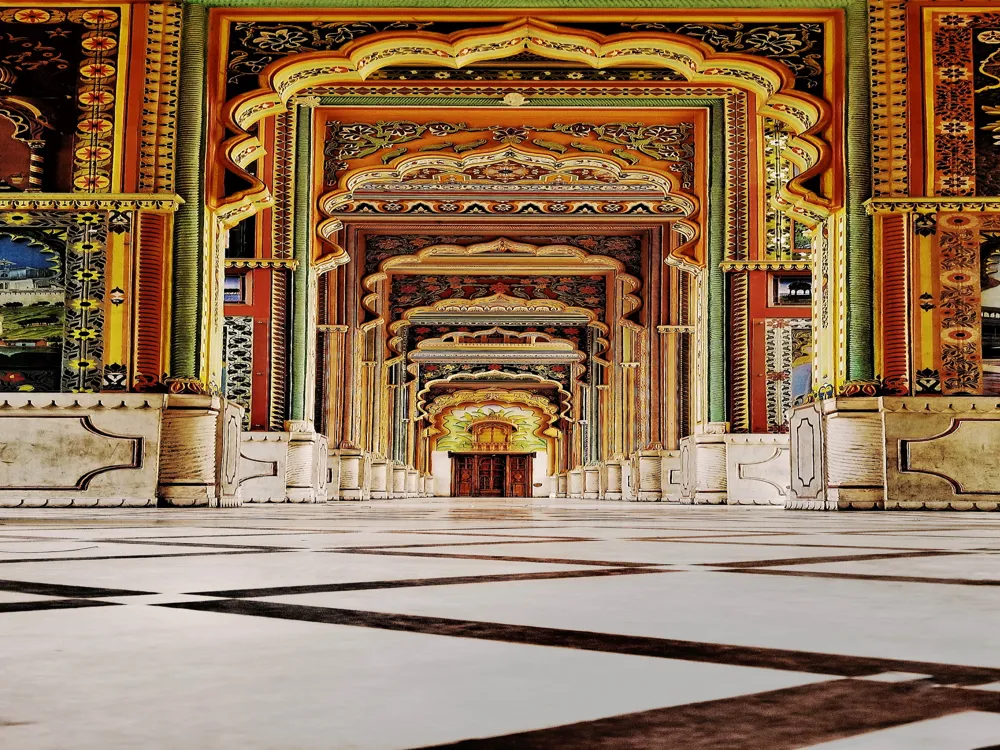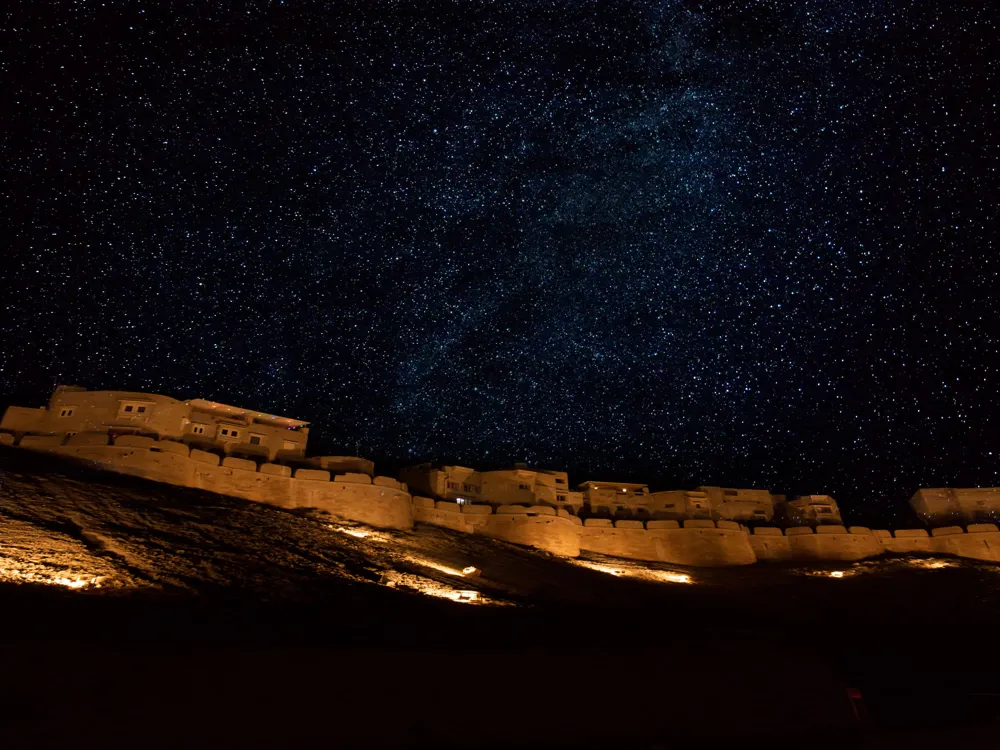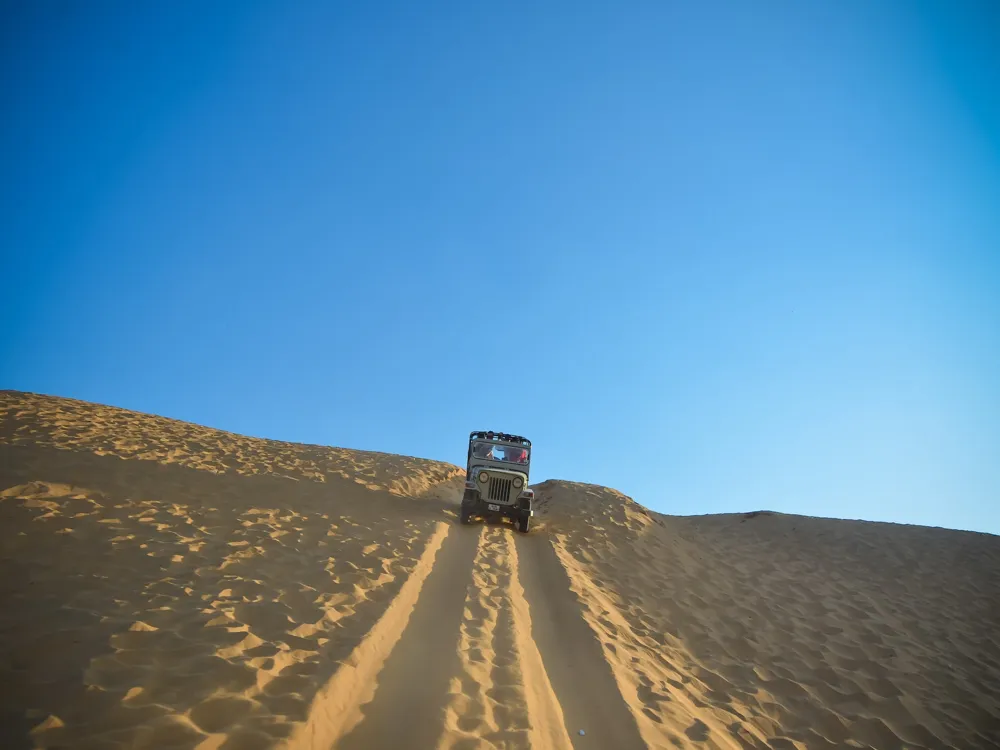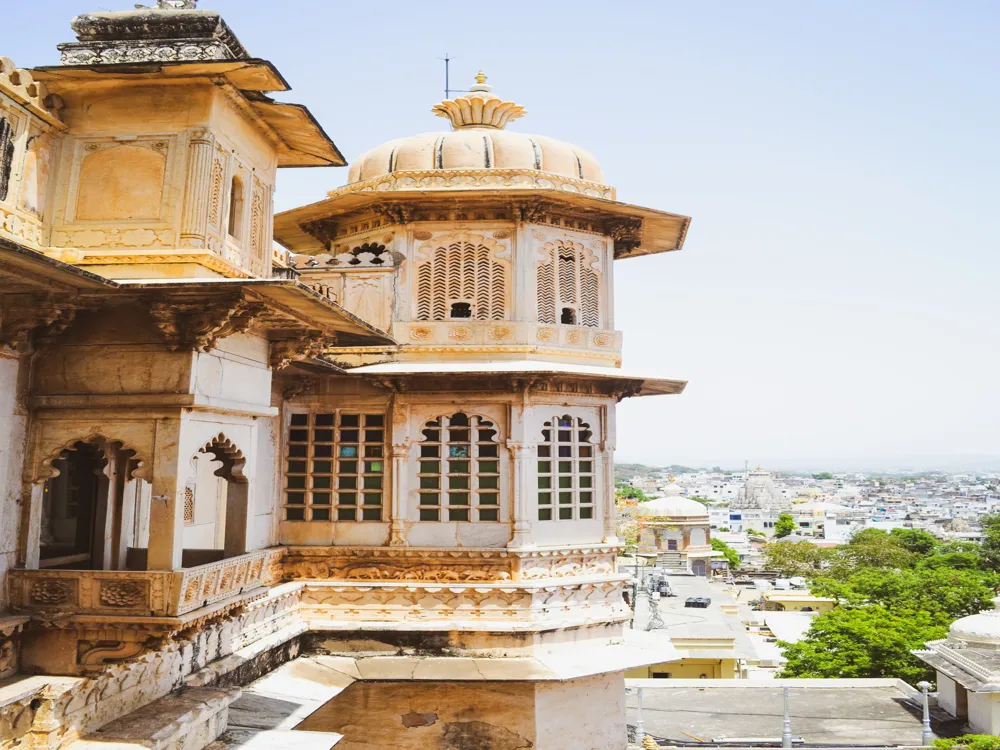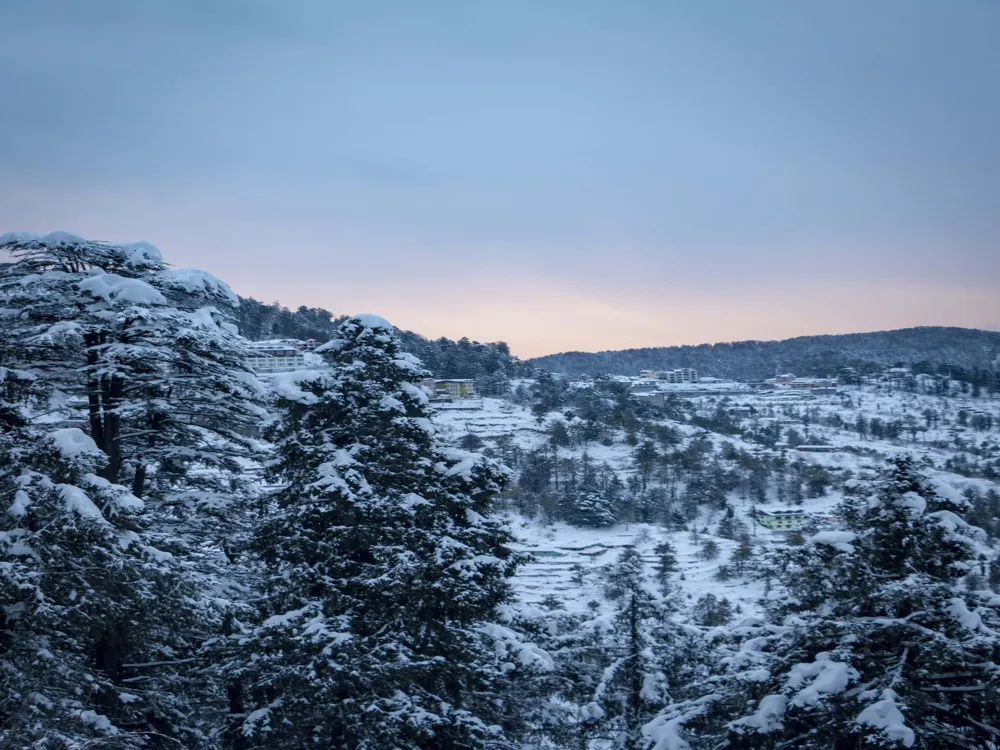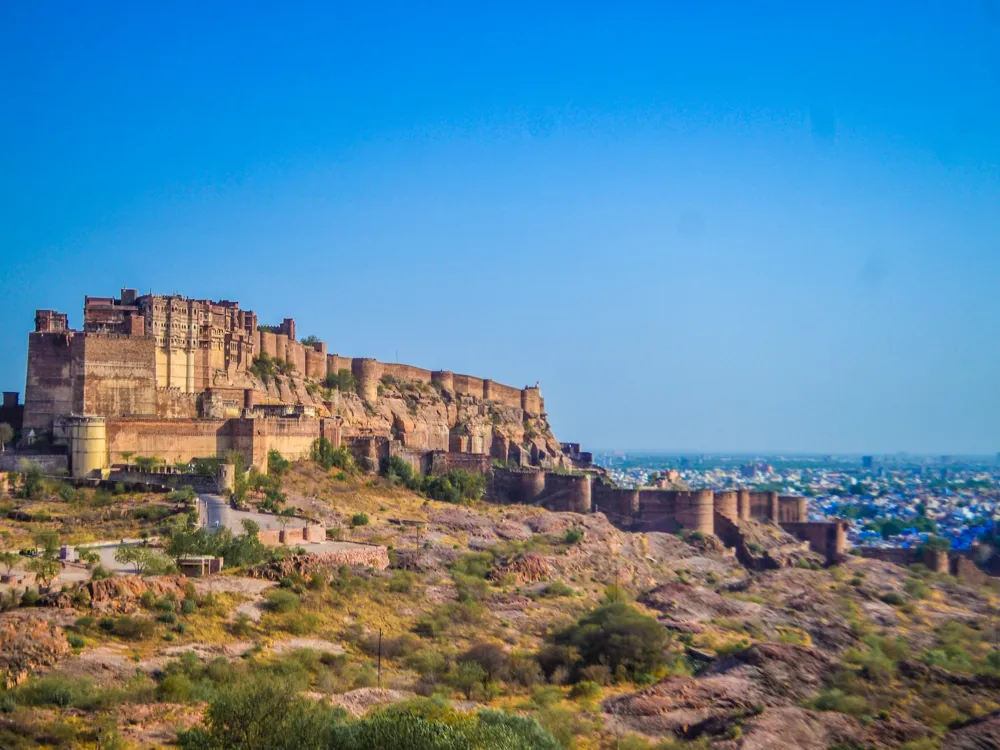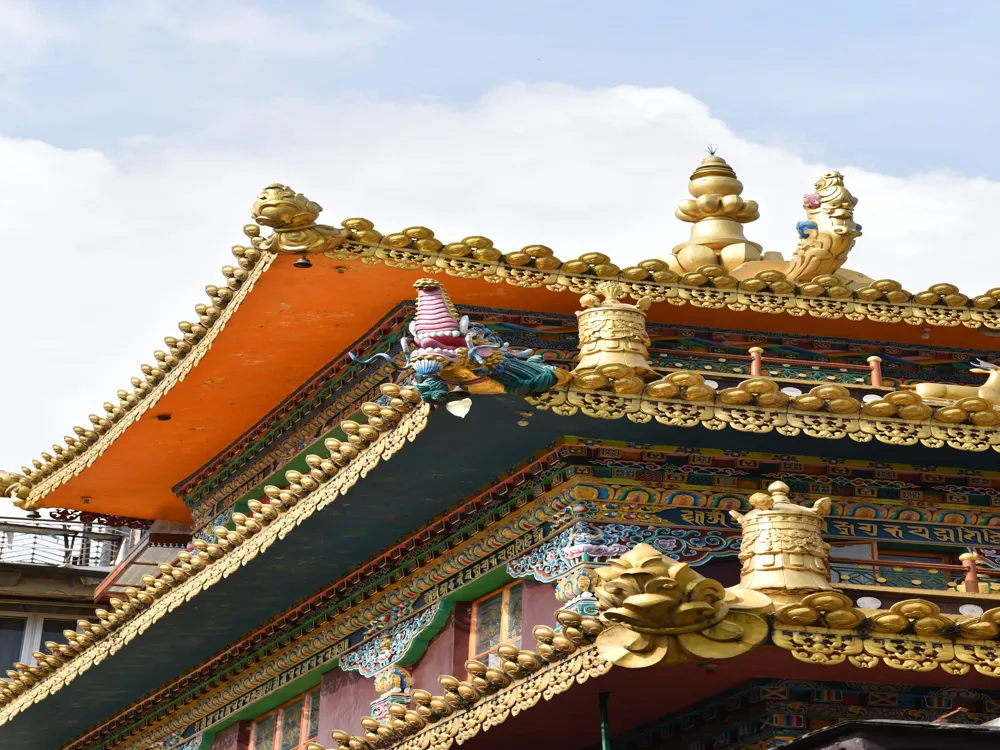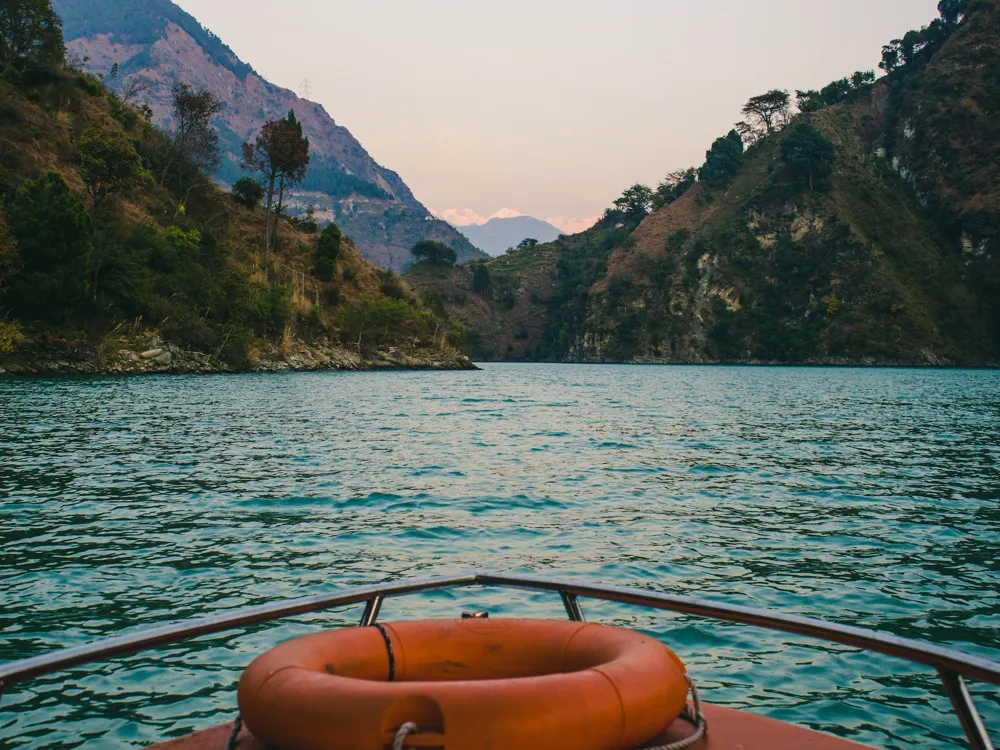Bikaner, a vibrant city in the heart of the Thar Desert, stands as a testament to India's rich cultural and historical heritage. Founded by Rao Bika in 1488, this city in Rajasthan is more than just a destination; it's an experience that encapsulates the essence of royal magnificence and traditional Rajasthani culture. The city is renowned for its majestic forts, opulent palaces, and ancient temples, each telling a story of its glorious past. Bikaner's unique geographical location has played a pivotal role in shaping its history and culture. Being a part of the desert, the city has overcome environmental challenges and thrived, which is evident in its vibrant culture, cuisine, and lifestyle. The people of Bikaner, known for their warmth and hospitality, add to the charm of this historical city. Bikaner's history is deeply intertwined with that of the Rathore clan. The city's strategic location along the caravan trade routes made it an important center of trade and commerce in medieval times. This affluence is reflected in the city's architecture, culture, and traditions. Bikaner has been a witness to many battles and has played a significant role in the history of Rajasthan. The city's architecture, from forts to havelis (traditional mansions), is a testimony to its rich historical legacy. The Junagarh Fort, a marvel of architecture, stands tall, narrating tales of bravery and battles. Bikaner also hosts the famous Camel Festival, which attracts visitors from all over the world, eager to experience the colorful culture of Rajasthan. Bikaner’s architectural landscape is a blend of tradition and history, reflecting the city's past splendor and Rajputana grandeur. The city's architecture is distinguished by its intricate carvings, jharokhas (overhanging enclosed balconies), and jaalis (latticed screens). One of the most prominent examples is the Junagarh Fort, a fortification that has never been conquered. Its interiors are adorned with exquisite mirror work, frescoes, and lacquer work, showcasing the craftsmanship of the Bikaneri artisans. Another architectural gem is the Lalgarh Palace, a fusion of Mughal, Rajput, and European styles. This palace is an epitome of luxury and is now partially converted into a heritage hotel, offering visitors a chance to experience royal living. Bikaner is also famous for its havelis, which are large mansions built by wealthy merchants. These havelis are known for their intricate carvings, sprawling courtyards, and beautifully painted walls. The Rampuria Haveli is one such example, often referred to as the pride of Bikaner. Additionally, the city's temples, such as the Karni Mata Temple, are not just places of worship but also marvels of architecture. These temples are adorned with gold and silver work, adding to their spiritual and aesthetic appeal. Bikaner's architecture is not just about grandeur; it’s a narrative of the city's evolution, resilience, and artistic ingenuity. The ideal time to visit Bikaner is between October and March when the weather is comparatively cooler and pleasant, making it perfect for sightseeing and exploring the city's wonders. Bikaner is famous for its savory snacks and sweets. Don't miss trying the Bikaneri Bhujia and mouth-watering sweets like Ghevar and Rasgulla. Local dishes like Dal Baati Churma and Ker Sangri are also a must-try. Respecting local customs and traditions is important. Dress modestly, especially when visiting temples and religious sites. It's also polite to remove your shoes before entering these places. Bikaner offers a range of accommodation options from budget stays to luxury heritage hotels. Staying in a heritage hotel can provide a unique experience of Rajasthani royalty and hospitality. Auto-rickshaws and taxis are the most convenient modes of transportation for getting around the city. For a more authentic experience, you can also opt for camel safaris, especially in the desert areas. Bikaner is well-connected and accessible from major cities in India. The city has its own railway station, Bikaner Junction, which links it to cities like Delhi, Mumbai, and Jaipur. If you prefer to travel by air, the nearest airport is the Jodhpur Airport, located about 250 kilometers away. Regular buses and taxis ply between Jodhpur and Bikaner. For those who enjoy road trips, driving to Bikaner can be an adventurous journey, offering a glimpse of the beautiful landscapes of Rajasthan.Overview of Bikaner, Rajasthan
Architecture of Bikaner
Tips When Visiting Bikaner
Best Time to Visit
Local Cuisine
Cultural Etiquette
Stay Options
Local Transportation
How To Reach Bikaner
Kote Gate
Bikaner
Rajasthan
₹ 15,250 onwards
View bikaner Packages
Bikaner Travel Packages
View All Packages For Bikaner
Top Hotel Collections for Bikaner

Private Pool

Luxury Hotels

5-Star Hotels

Pet Friendly
Top Hotels Near Bikaner
Other Top Ranking Places In Bikaner
View All Places To Visit In bikaner
View bikaner Packages
Bikaner Travel Packages
View All Packages For Bikaner
Top Hotel Collections for Bikaner

Private Pool

Luxury Hotels

5-Star Hotels

Pet Friendly












